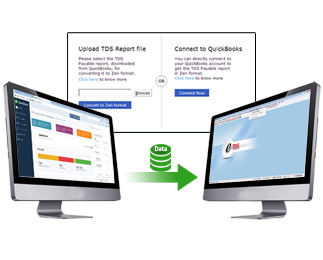Anti-Profiteering under GST- All you need to know
Starting from roots – History
History always plays an important role in shaping the present. At the time of implementation of VAT in India, there was a situation where the industries parked gains accrued to them on account of implementation of VAT and maintained a high price of goods. A system that was implemented with a positive mindset to rationalize tax and abolish cascading effect failed to pass on its benefit to the customers in the initial months, as the dealers enriched themselves at the cost of the common man. This was highlighted in a Study Report issued by C&AG named ‘Lessons for transition to Goods and Services Tax’ in June 2010.
As we all know Indian markets are highly sensitive to the effect of prices of goods and services and a slight change can have far-reaching effects such as inflation. As far as the recent developments are concerned under GST, it has been made clear by the government that it is not looking for higher revenues from GST by charging high tax rates on goods and services. An answer to the same has been given by defining slab rates under GST for different goods and services. The government aims to benefit from the increase in overall tax base, control on grey markets, and a more transparent and simple taxation regime.
Then how GST may cause inflationary conditions for Indian economy?
Despite the fact that the tax rates under GST are more or less same as the existing rates, still, there are chances of inflation under GST. The answer to the question comes from history when the industry fails to pass the benefit of reduced tax rates to the customers deliberately or due to lack of clarity during initial transitional periods. The effective tax rates at the consumer level are changed immediately but passing of these benefits may take time as discussed above. In case of a monopolistic economy, the same can be intentional as the industry wishes to earn more profits.
What is Anti-profiteering?
As per Section 171 of the CGST Act, any reduction in tax rate on any supply of goods or services, or any benefit of ‘input tax credit’, must be passed on to the recipient (for example, customer) by the registered person (e.g., trader) through a commensurate reduction in prices.
Thus, if a trader is paying, say, Rs. 100 less in the new tax rate on a certain item, he has to compulsorily sell that item for Rs. 100 cheaper, so the customer benefits proportionally. Failure to do so would mean the trader is indulging in ‘profiteering’. This is the concept of anti-profiteering.
The big picture
Despite a lot of agitation from the industry after the release of revised model law in November 2016, the government maintained the same provisions in respect of Anti-profiteering in the final Act too.
Accordingly, it is need of the hour that industry suo moto reduces prices of goods and services. However, if it doesn’t do so, then legal provisions are there in place to take care of such situations. An introduction of this measure is required to curb the practice of pocketing the tax benefit, rather than passing it on to the ultimate consumer by way of real reduction in the price of supplies.
Section 171 is followed by rules made by CG in respect of setting up of The National Anti-Profiteering Authority, that will have wide-ranging powers, including the power to issue notices to anybody that it feels warrants a “fair enquiry,” The same rules were highlighted in the 17th GST Council Meeting that concluded on 18-July-2017.
Authority and its powers
The powers of the authority include the ability to order a reduction in prices, impose a penalty, and even cancel the registration of a company deemed to have not passed on a tax rate reduction to consumers. The rules, which are made public, state that the authority is to be chaired by a Chairman, who holds or has held a post equivalent in rank to a Secretary to the Government of India.
The rules mandate a procedure from the detection of anti-profiteering to the decision of the authority. They provide for the creation of a standing committee, which would receive written complaints from anyone about anti-profiteering practices.
The standing committee, after reviewing the prima facie evidence, will refer the matter to the Director-General of Safeguards (DGS) for a detailed inquiry. The DGS must complete its investigation within three months of receiving the reference from the committee or furnish in writing reasons for a delay, which itself cannot exceed three months more. The authority will have three months to issue its verdict following the inquiry by DGS, which means the entire procedure, from investigation to the verdict, cannot exceed nine months.
International Impact of Anti-profiteering
India stands after 150 nations in the world to adopt a single tax regime of GST. A broad overview of the experience of rest of the world in implementing Anti-profiteering has been gloomy, involving a number of problems. India has to learn from the bad experience of others while implementing the same in its economy.
The way forward
There are a number of challenges involved in the implementation of Anti-profiteering under GST. To list a few; practical difficulty in the computation of actual benefits derived, the problem in the determination of reduced price, constitutional challenges relating to free trade, etc.
From consumers’ viewpoint, anti-profiteering is a bliss as it ensures them their entitled benefits under the taxation system. At the same time, there are a number of challenges involved too. Any further rules to be made shall ensure that they are detailed and clear so that there is no scope left for discretion and confusion that may further lead to corruption and trade malpractices. We just hope for a positive beginning.



